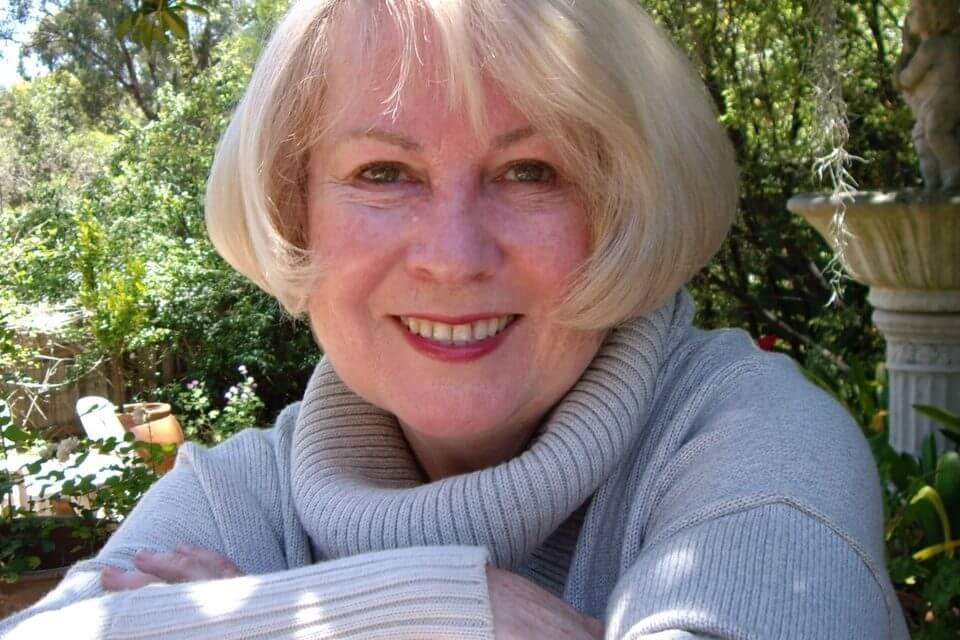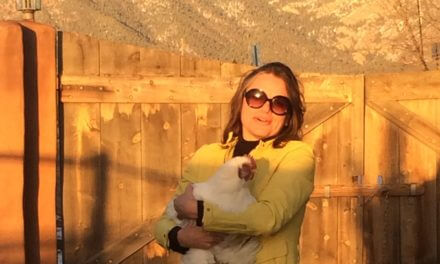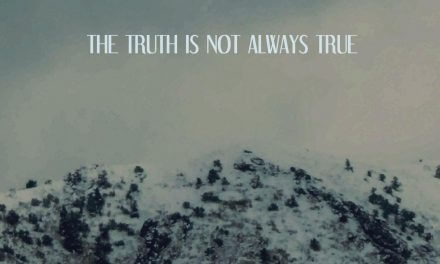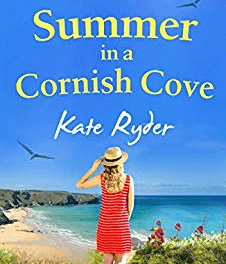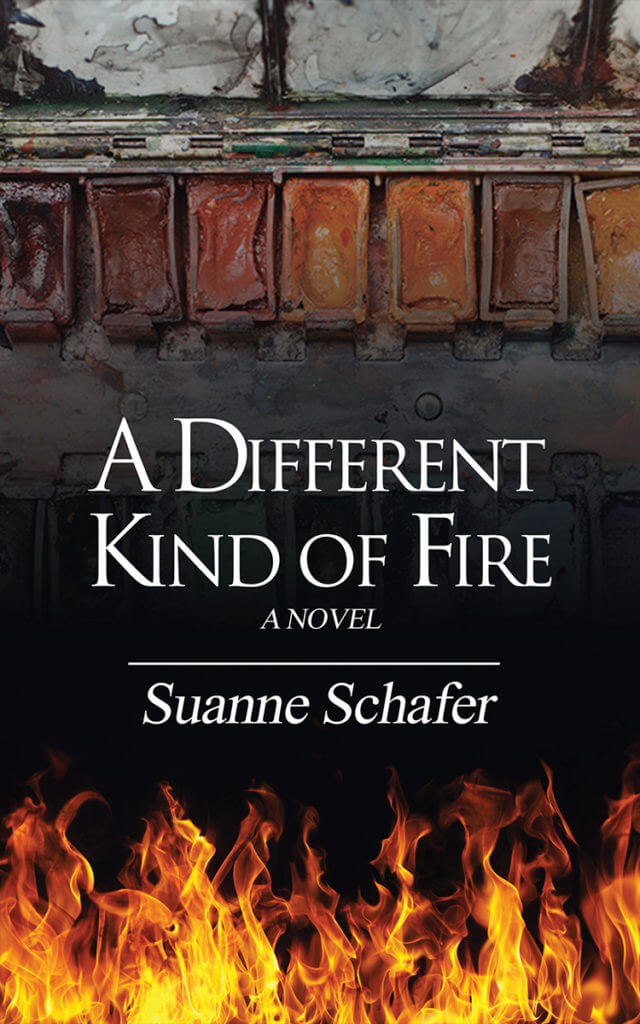Today my guest is the prolific author, Kathryn Gauci. She was born in Leicestershire, England, and studied textile design at Loughborough College of Art and later at Kidderminster College of Art and Design where she specialized in carpet design and technology. After graduating, Kathryn spent a year in Vienna, Austria, before moving to Greece where she worked as a carpet designer in Athens for six years. There followed another brief period in New Zealand before eventually settling in Melbourne, Australia.
Before turning to writing full-time, Kathryn ran her own textile design studio in Melbourne for over fifteen years, work which she enjoyed tremendously as it allowed her the luxury of travelling worldwide, often taking her off the beaten track and exploring other cultures. The Embroiderer is her first novel; a culmination of those wonderful years of design and travel, and especially of those glorious years in her youth living and working in Greece. The Embroiderer has also been published In Greek.
Since then, she has gone on to become an international bestselling author. Code Name Camille, written as part of The Darkest Hour Anthology: WWII Tales of Resistance, became a USA TODAY Bestseller in the first week of publication, and The Secret of the Grand Hotel du Lac became an Amazon Best Seller in both German Literature and French Literature. The Blue Dolphin: A WWII Novel is her eighth novel.
SS: Can you share a little of your background, Kathryn?
KG: Thank you for interviewing me Suanne. Great to chat with you. I was born in England and after studying art and design, specializing in carpets, I went to work in Vienna for a year and then on to Athens. After six wonderful years there, I moved to Auckland, NZ. For almost two years and ended up in Melbourne, Australia, where I have been living ever since. After a long and wonderful career as a textile designer, I wanted a change. That’s when I turned to writing. It still satisfied my creativity and change to travel and I love it. In a way, it was a logical move as there are many similarities between being a designer and an author.
SS: What did you want to grow up to be as a child? Has that child’s desire appeared in your work?
KG: I always had a sense of adventure and wanted to escape to somewhere “over the rainbow”. My early school stories were always about adventure—Adventure in Spain—which I wrote at age 12 and, embarrassingly, still have. I was always creative too. I could never have enough colouring books and started to copy painting of old masters at primary school. I also made my own clothes.
SS: Did anything in your past push you to write about your book and the conflict(s) in it?
KG: I write WWI and WWII historical fiction set in Europe and also in Greece and Turkey, so I can say most definitely. I grew up listening to music of the big band era and watching films such as Casablanca and The Third Man, but it was really in Vienna and Athens that I grew to see how war impacted people in Europe. Talking to people who have experienced it and walking through these areas gives you a deeper understanding.
SS: Hilary Mantel Mantel (Wolf Hall) says that a Catholic upbringing is the only qualification a writer requires. Can you relate to this idea? Do you have any similar writing qualifications?
KG: I think that determination, research, hard work, and a good imagination, are the most important qualifications. If Mantel is writing from the aspect of conflict and hardships because of religion and politics, then definitely I would agree things like that can give you a depth of understanding.
SS: How long have you considered yourself a writer? Did you have any formal training, or is it something you learned as you went along?
KG: I didn’t have any formal writing and am not really the sort of person to go to writer’s groups. I would rather just get on with it and write to the best of my ability the sort of story I would like to read myself. However, I did produce trend directions for clients when I was a designer and that entailed immersing and transporting the client to another time and place through colour, design, history, social change, etc. so learning to create that “other world” wasn’t new for me.
SS: Do you generally write in one genre? If so, what is it? And what can readers expect from one of your books?
KG: Historical fiction WWI and II is my genre at the moment, but a part of my first book, The Embroiderer, was a saga set during the Greek War of Independence 1821-29, and the years up through to WWII. Readers can expect that I have walked (and sometimes lived) in the areas I write about and have a passion that makes me research my subject well. I like to think my reader is being taught history without reading a history book – through life, relationships, characters, and emotions that will touch them. And I always have twists and turns in the plot.
SS: The same is true for me. Readers can trust that I’ve walked the lands I describe and have lived—or at least visited—those areas. Kathryn, what are you working on at the moment?
KG: A WWII novel set in Vienna. This one will bring in my art and design background against the backdrop of war.
SS: How has Covid affected your writing? Your future writing? Your Life, Your family?
KG: I missed catching up with people, but my husband and I have tried to carry on as best as we could. In the summer, we had the garden to sit in. Now we have winter and it’s harder. I have still been writing, so nothing changed there. The only hardship is not being able to travel to Europe this year.
SS: If you could have been the author of any original book, what would it have been and why?
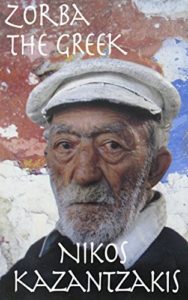
SS: When you are creating a story, do you avoid any books in the same vein so as not to be influenced by others, or do you seek out all possible variations for maximum inspiration.
KG: Yes, I am constantly reading books by other authors in the same genre. I don’t aim to be like any of them as I have my own voice, but I think it’s important to see how various authors tackle a subject and their writing style.
SS: What is your most recent book? In Twenty-five words or less, tell me why a reader should start your book next?
KG: A Greek Island WWII: A woman’s struggle to balance a forbidden love and her duty to her daughter, the villagers, and her country. A page-turner.
SS: What kind of research did you think you had to do? How much was actually needed?
KG: This one is set over a short time-span and I already had a background into Greek village life during WWII and of the Italian and German Occupation, so it needed less research than others. It is more about the interaction between the characters and the setting. A more intimate story.
SS: Do you know the ending to your story when you put pen to paper? If so, have you ever changed the ending after you started to write?
KG: Yes, I have to have the beginning and the ending clearly marked out. There may be a little tweaking. This gives me something to aim for. Then comes the skeleton. These days I work from a wider viewpoint and see where the plot and characters take me but for me, the longer the timeframe, the more I need to have more of an outline in order to plan the story within the events. The shorter the story, the more fluid. Always an ending though.
*******************
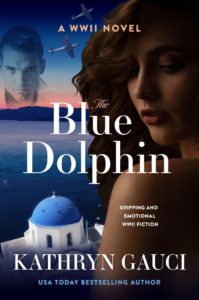
*******************
An excerpt from Chapter Nine of The Blue Dolphin:
Nefeli looked down at the stranger in amazement. Every now and again, his eyes flickered open and he emitted a strange gurgling sound as though he was gasping for air. She couldn’t be sure if he was in the final stages of death as she’d heard the same sounds coming from a dying man who was shot by the Germans in Chora. She and the other villagers were forced to walk past him in a single file and take note of what happened when someone defied them. The sight and the awful sound stayed with her for weeks.
‘How long has he been like this?’ she asked Georgia.
Georgia’s voice called out from the other side of the kilim. She refused to go anywhere near him. ‘Several hours. I was doing school work when I first heard him and I thought I was imagining things because it lasted barely a few seconds – and it was so soft. I was scared but peeked to take a look at him. His eyelids flickered yet he still looked the same. An hour later, he did it again. It was a horrible guttural sound and much louder. That’s when I went outside and waited for you.’
Nefeli asked Georgia to get the raki from the pannier.
‘He’s going to live, isn’t he?’ Georgia said, more as a statement of fact than a question. She passed the bottle between the kilims, her head turned away to avoid looking at what lay behind them. ‘I’m scared.’
Nefeli didn’t reply. Georgia could hear her moving about behind the hangings and asked again. This time, Nefeli opened the kilims and tied them back to let in some light.
‘Stop this at once,’ she said angrily. ‘I’ve had a terrible day and you’re not making it any easier. What can he do to you?’
Georgia backed away and sat on the divan while Nefeli settled herself on the floor and attempted to pour a little raki into the man’s mouth. In a matter of seconds, he gulped and spluttered and his eyes flickered open again. This time they stayed open, staring at her in a way that frightened her. It was a strange, vacant look, as if he looked beyond her to somewhere else. Maybe he was blind. She noticed he had beautiful eyes – the colour of the Aegean sky –blue and sparkling. She was so taken that she tipped too much raki into his mouth and he started to choke. She hastily lifted his head until he stopped. His eyes closed and he lay motionless again. Nefeli felt his pulse, as she had done frequently since she found him, and this time she was sure it was much faster.
Georgia refused to be silenced. ‘He’s not going to die after all, is he? What are you going to do now? I don’t want to stay here alone with him. The next time you leave the house, I shall go with you.’
Nefeli covered the man with the blanket, put the raki away and joined her on the divan. ‘It’s still possible he may not pull through.’
Georgia knew her mother too well. ‘He swallowed the raki, his heart still beats, and I think you want him to live.’
Nefeli fixed her eyes on Georgia, searching for something to say.
‘You do, don’t you?’ Georgia continued, when her mother didn’t reply. ‘Why do you want this stranger – the enemy – to live? I am afraid the villagers will kill you if they find out.’
‘The Germans were here today – at the taverna.’
‘Then why didn’t you tell them you’d rescued him. They would take him away and maybe…’
‘Maybe what?’
‘Give you a reward. Then you wouldn’t have to marry again.’
Nefeli laughed. ‘Oh my precious one; if only it was that simple.’ The laughter faded and she became serious. ‘There was a Greek with them. I think he was there under duress, but I couldn’t be sure. Maybe he would tell people what we had done. Besides, the andartes have hidden things in caves and if they find them, we will all be in trouble. I wanted them to leave as soon as possible.’
‘What have the andartes hidden?’
‘Never you mind.’
Georgia hated it when her mother treated her like this.
‘It’s guns, isn’t it? That’s what the andartes have hidden.’
*******************
You can follow Kathryn on social media here:
Website | Goodreads | Facebook Author page | Facebook | Twitter | LinkedIn | Instagram | Amazon Author Page
*******************
This post contains Amazon Affiliate links. As an Amazon Associate, I earn a small amount from qualifying purchases.
